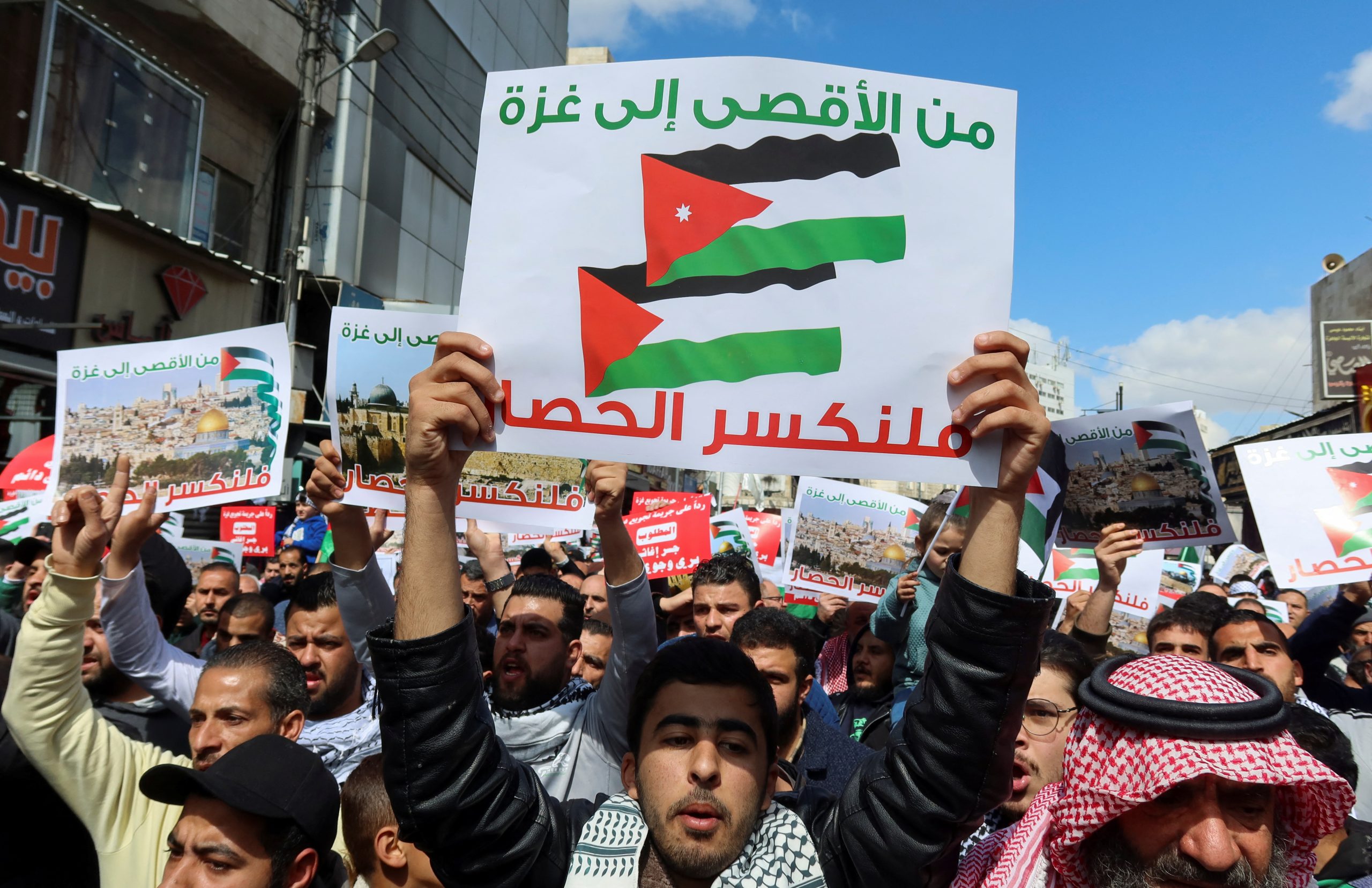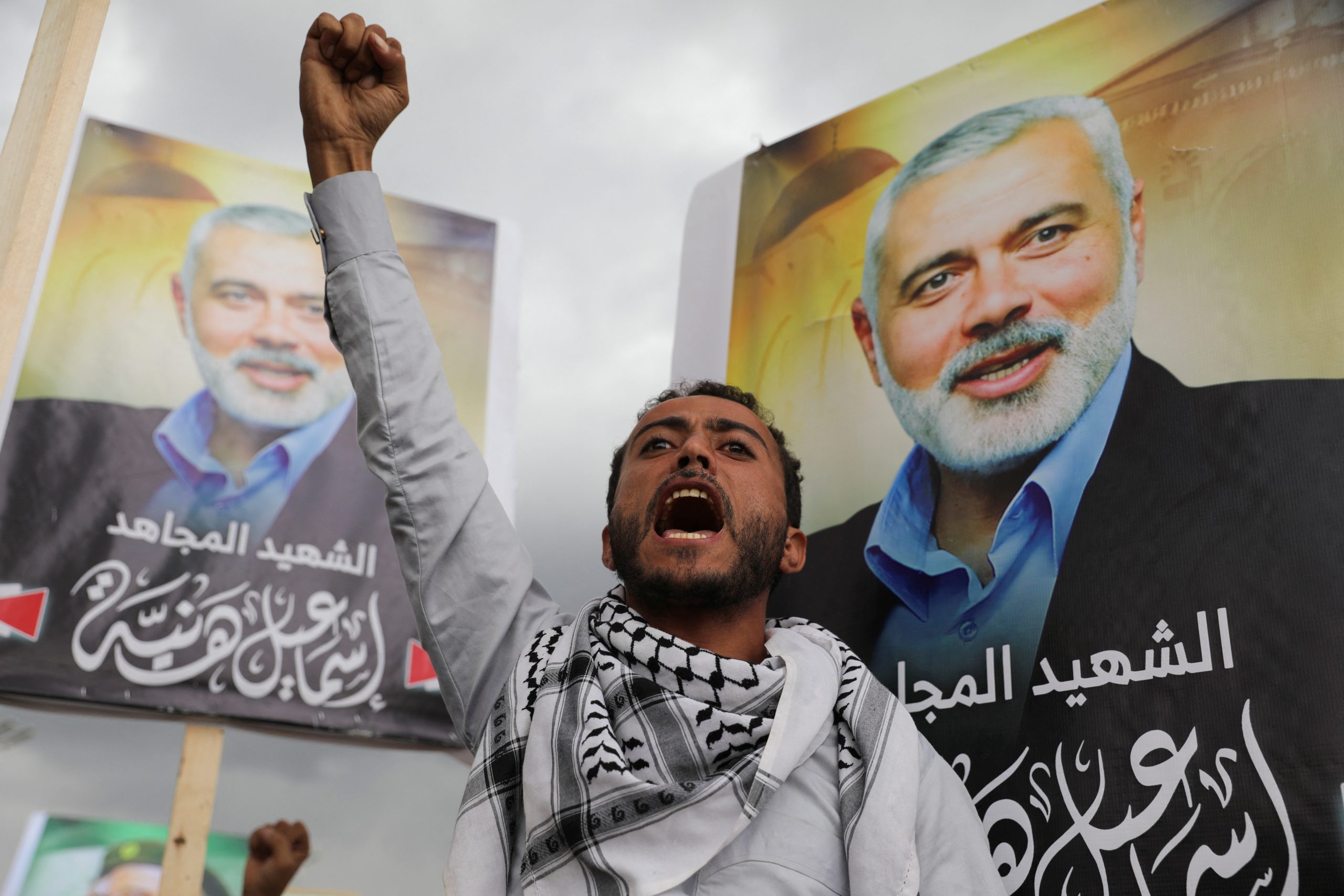Publications
INSS Insight No. 1889, August 25, 2024
Arab states can help advance a ceasefire in the Gaza Strip, an agreement for the release of the Israeli hostages being held by Hamas, and an end to the war by adopting a resolute approach to Hamas. This approach, involving increased pressure, isolation, and delegitimization, should aim to undermine Hamas’s image and standing among the Arab public opinion. The proposed measures include media campaigns and public denunciations, legal sanctions, limitations on activity, and the promotion of an alternative religious discourse. These actions should occur in parallel with efforts to reform and strengthen the Palestinian Authority and assist in restoring its control over the Gaza Strip. Israel, in turn, should support these Arab measures and be willing in the future to advance a plan for a resolution based on “two states for two peoples,” contingent upon security guarantees and a coordinated effort with the regional states to stabilize and rebuild the Gaza Strip on “the day after the war.”
Since Hamas’s attack on October 7, the leaders of the Arab world have faced a complex challenge. Moderate Arab states, including Egypt, Jordan, Morocco, the United Arab Emirates, and Saudi Arabia, strongly oppose Hamas’s path of “resistance” and its ties to the Iranian axis. They desire the expulsion of Hamas from the Gaza Strip and identify—even if only privately—with the aims of Israel’s war. At the same time, however, these views are rarely shared publicly, as the prevailing discourse among the Arab public remains largely supportive of Hamas. As a result, while Hamas faces continuous military pressure from Israel, it has not been subjected to the necessary concurrent pressure from the Arab public. This situation has allowed the organization to operate under the belief that it enjoys support from the Arab street, which has strengthened Hamas’s reluctance to compromise. This is demonstrated by the strict conditions it has set for the hostage release and the end of the war, as well as its confidence in its ability to survive as a relevant and legitimate actor after the war.
With the exception of the United Arab Emirates and Bahrain, Arab states have not officially denounced the October 7 attack or Hamas as the perpetrator. In Egypt, for example, Hamas is often portrayed as a legitimate resistance movement engaged in a just, although seemingly futile struggle against the Israeli occupation. Egyptian spokespersons, both official and semi-official, tend to downplay the atrocities that Hamas committed on October 7 and its use of the Gazan population as “human shields” to protect itself. Instead, they tend to focus on criticizing Israel. This approach distorts the message and implies that Israel, rather than Hamas, is the aggressor, responsible for the outbreak of the war, widespread killing, and the suffering of the population in the Gaza Strip.
Arab views reflecting this sentiment have been evident throughout the war. While Arab states have condemned the harm inflicted on women and children in Gaza, they have been silent about the harm suffered by women and children in Israel. Arab states denounced the assassination of Hamas’s Political Bureau chief, Ismail Haniyeh, without framing it as part of a necessary war against a terrorist organization. Egypt defined the assassination attributed to Israel as a “dangerous escalation,” Jordan as “a crime,” and Saudi Arabia as a “blatant violation of Iranian sovereignty.” Moreover, Arab states have openly called for Israel, and not Hamas, to be flexible in order to achieve a ceasefire (even if behind the scenes, Egypt and Qatar have conveyed more forceful messages to Hamas). A more critical Arab tone toward Hamas has sometimes been taken by its internal Palestinian rivals.

Arab states have refrained from increasing public pressure on Hamas for several reasons. These include concern for their own domestic public opinion, especially in states where the ruling regime is facing economic and demographic challenges; a desire to maintain a mediating position that is not seen as “pro-Israel” (particularly in the case of Egypt); a historical hostility toward Israel among key elements of the ruling elite; a lack of clarity regarding Israel’s intentions for “the day after the war” and fears that Israel seeks to occupy the Gaza Strip and impose a military administration there; and doubts regarding the ability of the Palestinian Authority to govern Gaza instead of Hamas. In addition, Arab states are concerned about damaging their relations with Hamas’s regional patrons—Qatar, Turkey, and Iran—which limits rhetorical flexibility.
However, as demonstrated in the past ten months since the start of the war, the “soft” approach to Hamas does not serve the basic Arab interest of achieving a sustainable ceasefire agreement that is also acceptable to Israel. A ceasefire agreement would end the war and prevent further humanitarian, economic, and security-related damage to Palestinians and Arab states. It would also help avert dangerous escalation between Israel and Hezbollah, together with Iran, which could lead to a regional war. Moreover, the isolating and delegitimizing of Hamas would strengthen the position of the Palestinian Authority as an alternative to Hamas rule and make it difficult for Hamas and the broader Islamist movement in the Gaza Strip in particular, and the region as a whole to recover.
Experience has shown that Arab pressure on Hamas can be effective, given its sensitivity to its public image. For example, in July 2015, after terrorists trained in Gaza murdered Egypt’s general prosecutor, Egypt launched a public campaign to delegitimize Hamas. Egypt tightened the blockade of Gaza and threatened sanctions against Hamas, including classifying it as a terrorist organization, unless fundamental policy changes were made. These threats were accompanied by a defamation campaign in the Egyptian media, portraying Hamas as the military wing of the Muslim Brotherhood. The pressure bore fruit, resulting in understandings reached between the parties in 2016–2017, according to which Hamas severed ties with the “Sinai Province” of ISIS and reduced its subversion against Egypt.
At present, critical voices against Hamas are evident but still limited to the margins of the Arab discourse. These voices should reach a broader spectrum of public opinion shapers, including leaders, journalists, and religious figures. For example, an article published by the official Egyptian daily newspaper Al-Dustur in July 2024 cast doubt on the mental stability of Hamas leader Yahya Sinwar, questioned whether he was fit for his role, and called for his removal from decision-making positions. The article also held that Hamas is not a national liberation movement fighting for the Palestinian interest but rather promoting the agenda of Iran, the Muslim Brotherhood, and Turkey. Furthermore, it has been suggested that Hamas violated Islamic law by kidnapping women and children and hiding them in civilian residences, while also failing to provide refuge for the inhabitants of those areas, resulting in the deaths of tens of thousands of innocent people.
The challenge facing Arab states is complex and requires a delicate balance between denouncing Hamas and renouncing its path while not appearing to support Israel and turning their back on the Palestinian issue. At the same time, as the war continues and Hamas is perceived as thwarting every plan for a ceasefire and the return of the hostages, while also endangering Arab interests and escalating regional tensions, there is a greater probability that more Arab states will adopt a resolute approach toward the organization. Arab states have diverse means to increase the sense of isolation and delegitimization of Hamas, including:
- Public condemnation: Arab states should publicly and retroactively denounce Hamas’s actions, particularly the October 7 attack and highlight its barbaric actions, which distort the spirit of Islam. They should also condemn the consequences of Hamas’s actions, which led to the outbreak of a bloody war and the unimaginable suffering inflicted upon the nations and states in the region, particularly the Palestinian people and the inhabitants of the Gaza Strip.
- Information campaign: Arab states should launch a media campaign to emphasize the damage caused by Hamas to the Palestinian issue and Arab interests, as well as highlighting the organization’s connection to political Islam and Iran’s axis of resistance. To achieve this, official Arab media channels should provide large, widely circulating platforms for Palestinian and Arab voices that are critical of Hamas, which are currently limited mostly to social media. Criticizing Hamas does not contradict Arab states’ support for the rights of the Palestinian people nor their criticism of the Israeli government’s rejection of a political process aimed at a two-state reality.
- Legal measures: Arab states should impose sanctions on activists who support Hamas in their public and virtual spheres or raise donations for the organization. In addition, the Arab League should consider classifying Hamas as a terrorist organization.
- Limiting Hamas’s activity: Arab states should threaten Hamas with measures to curtail its activity within their soil and downgrade their relationship with it. Punitive measures against Hamas may include the closure of offices, the prevention of fundraising, imposition of sanctions against leaders, restrictions on travel and movement, and the freezing of bank accounts.
- Encouraging an alternative, moderate religious discourse: Arab state religious institutions such as Al-Azhar in Egypt should prevent the mixing of religion with politics. Alternatively, they should denounce the acts of terrorism carried out by Hamas against innocent civilians as illegitimate under Islamic religious law.
- Building an alternative to Hamas rule in the Gaza Strip by strengthening the Palestinian Authority: Arab states can increase their support for a “revitalized” Palestinian Authority as an alternative to Hamas, while assisting with reforms that will facilitate the PA’s return to the Gaza Strip as a legitimate governing force with broad public support. This position can be achieved through various actions in areas such as diplomacy, economics, humanitarian activity, security, and media. The United Arab Emirates can serve as an Arab positive model in this regard, with their vision of establishing a provisional international taskforce for Gaza, whose goals would be to address the humanitarian disaster; establish law and order; and lay the foundation for a legitimate government in the Gaza Strip under a single Palestinian Authority.
Israel should encourage Arab states to consider this proposed course of action. Israel can do so by demonstrating a willingness in principle to move forward with the vision of “two states for two peoples.” Furthermore, Israel can support initiatives aimed at stabilizing and rebuilding the Gaza Strip the day after the war; and it can commit to withdrawing IDF forces from the Strip once a moderate regime connected to a revitalized Palestinian Authority is established there. To achieve these goals, Israel must differentiate between Hamas and the Palestinian population, be more open to cooperation with pragmatic Palestinians who are not part of Hamas (and reject the ethos of violent resistance), and emphasize the risks to the region if Hamas is seen victorious at the end of the war.
The Middle East is not a zero-sum game between Arab–Israeli or Muslim–Jewish interests; rather, it is a dynamic space that encompasses a range of multifaceted, mutual interests, which should be nurtured through calm and responsible dialogue. Agreement on the need to weaken Hamas and the axis of resistance could provide a solid foundation for pragmatic cooperation among all the actors who aspire to shape a stable, integrated, and prosperous region following the war.



